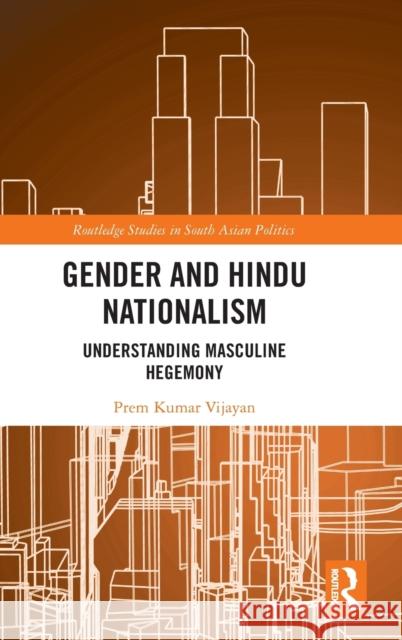Gender and Hindu Nationalism: Understanding Masculine Hegemony » książka
Gender and Hindu Nationalism: Understanding Masculine Hegemony
ISBN-13: 9781138647978 / Angielski / Twarda / 2019 / 222 str.
Gender and Hindu Nationalism: Understanding Masculine Hegemony
ISBN-13: 9781138647978 / Angielski / Twarda / 2019 / 222 str.
(netto: 723,00 VAT: 5%)
Najniższa cena z 30 dni: 654,86
ok. 22 dni roboczych.
Darmowa dostawa!
Hindu nationalism - as a discourse, a set of organisations, and as a movement - has gained a lot of ground in India, as is evident in the coming to power of the Hindu nationalist Bharatiya Janata Party (BJP) in the last general elections in 2014. This book analyses the broader social base of Hindu nationalist organisation in order to understand the growth of 'Hinduva', or Hindu nationalism. It also puts forward the argument that Hindu nationalist thought and predilections are not just the ideological constructions of specific political and/or 'cultural' agents and agencies, but emerge out of, and in turn feed, pre-existing gendered tendencies. This concept is defined as 'masculine hegemony', specifically Brahmanical masculine hegemony. The book further examines mutations in caste relations, their impact on Hindu nationalism, and their current relations to the Hindu nationalist movement. It sheds light on the close yet uneasy relations that Hindu nationalist thought and practice has with conceptions of 'modernity' and 'development', as well as with women's movements and politics. As such, it leads up to an analysis of the present, including the last general elections, their implications and the aftermath. A new approach to the study of Hindu nationalism, this book will be of interest to scholars of South Asian history and politics as well as Asian gender studies.











